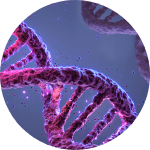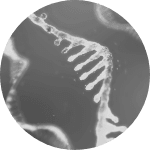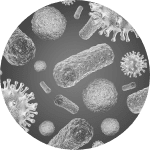-
Genome
-
The genome refers to the entire genetic information of an organism and is an essential basic data for genetic and breeding research.
In the case of a species without a reference genome, a new genome will be generated.
In the case of a species with a reference genome, variant calling and trait association studies are performed through genome resequencing.
-
De novo Genome Assembly
and Annotation -
PHYZEN provides high-quality reference genome and annotated gene set through comprehensive analysis using various data such as long reads from 3rd generation sequencing, short reads with high accuracy, and Hi-C reads helping intrachromosomal scaffolding, and RNA-Seq data for evidence-based gene prediction.
PHYZEN also provides functional annotation information for annotated gene set through various bioinformatics analyses.
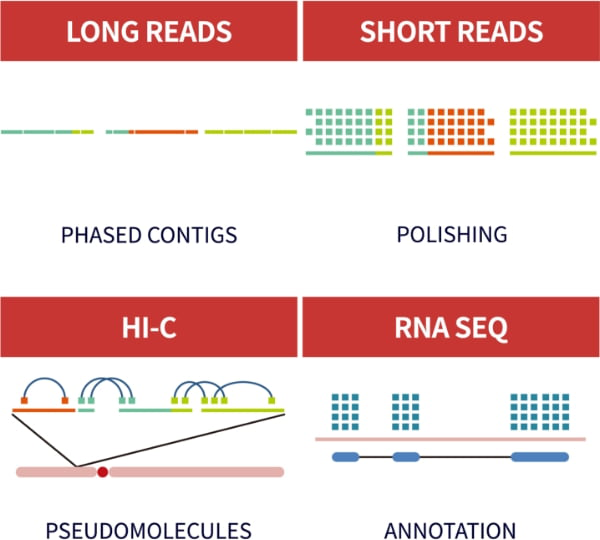
-
Pan-Genome /
Comparative Genome -
PHYZEN provides figures to understand the structure of the completed genomes. In addition, PYHZEN supports search for genes among interest and related species (Paralog and Ortholog), comparative genome analysis, PAV search, and Pan-genome analysis.
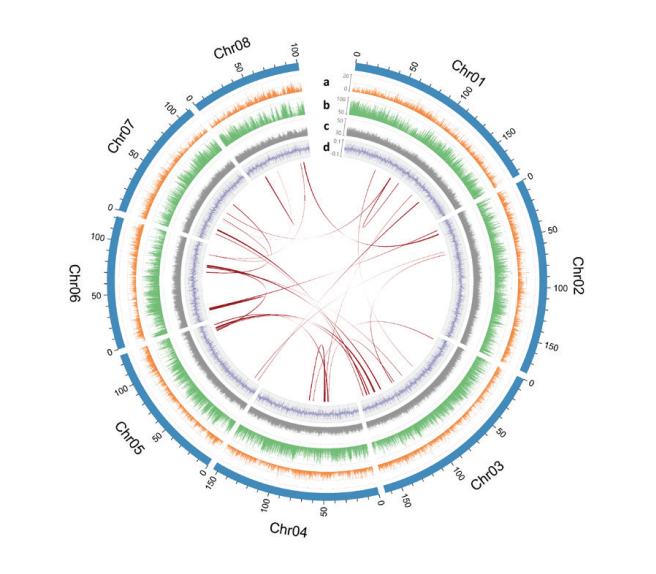
Visualization for chromosome structure
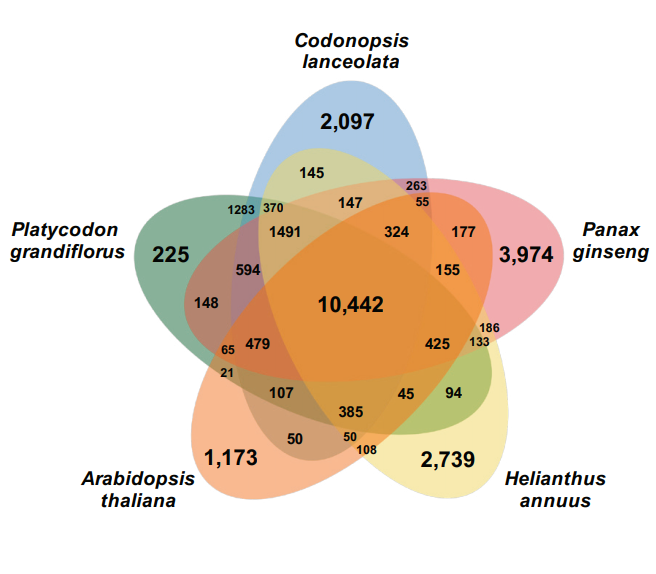
Common and unique gene analysis
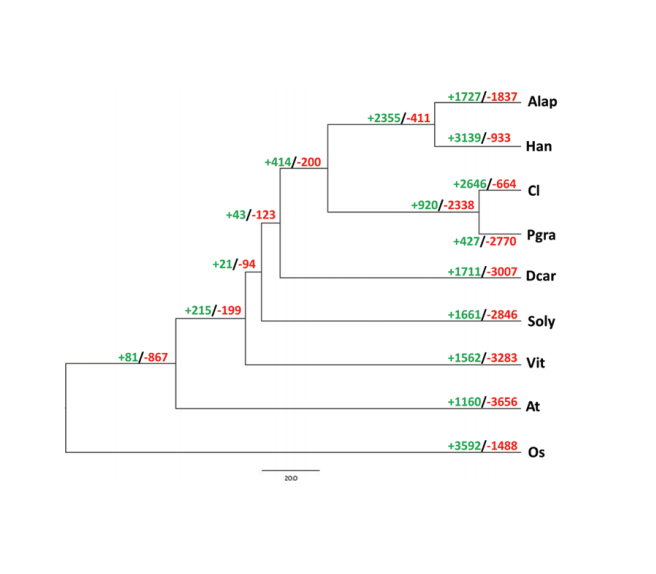
Gene expansion and contraction analysis
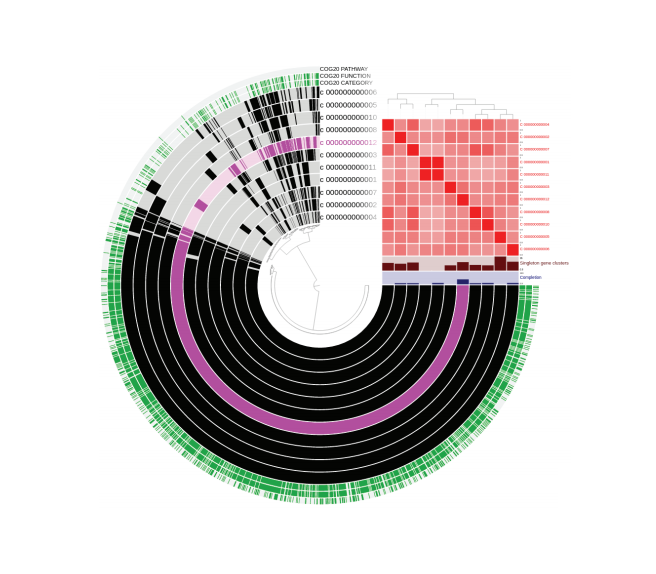
Pan-genome analysis
-
Whole Genome Resequencing
-
In the case of a species with a reference genome, variants such as SNP and InDel can be discovered through genome resequencing.
PHYZEN provides a wide range of analysis services such as GWAS (Genome Wide Association Study), QTL (Quantitative Trait Loci) analysis, sub-population structure analysis, high-density genetic map construction and molecular marker development.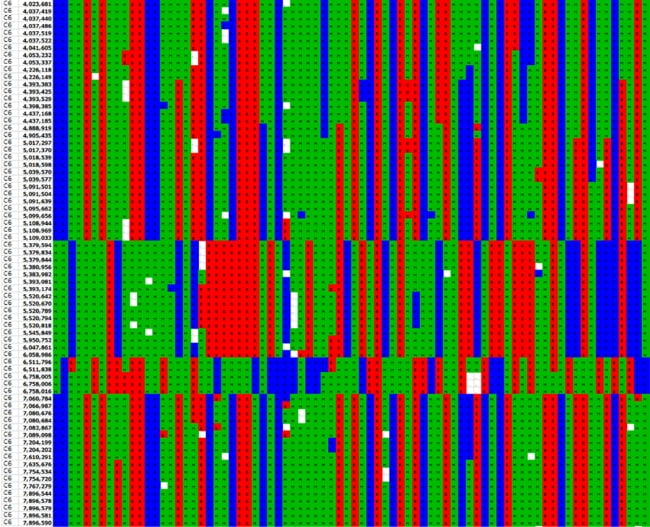
Genotyping of small variants
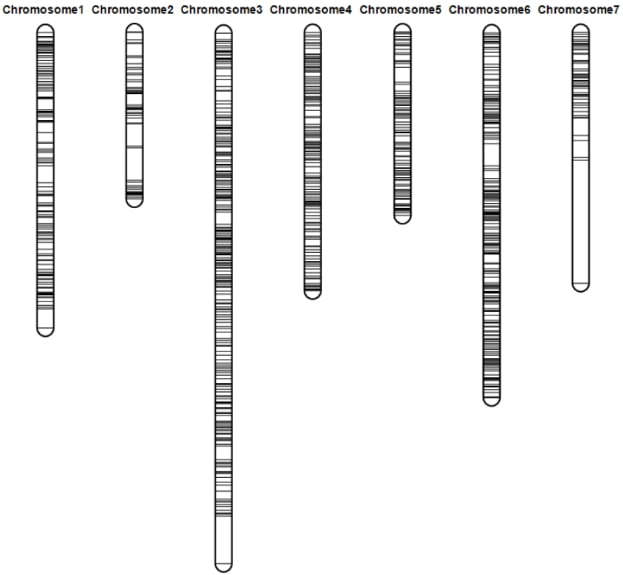
Construction of genetic maps
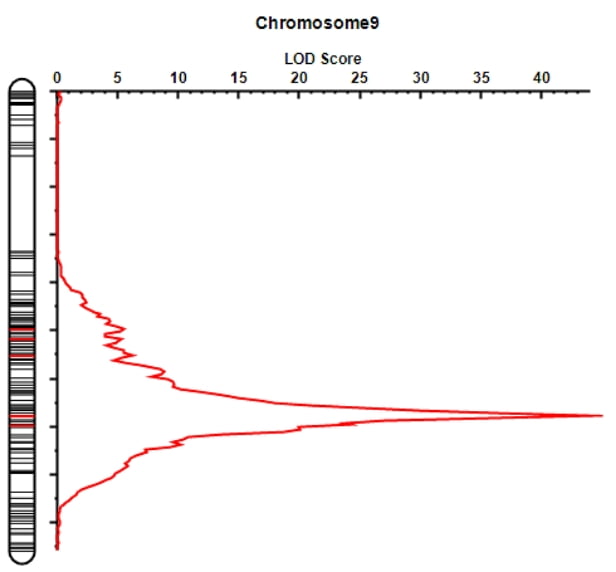
Detection of QTL (Quantitative Trait Loci)
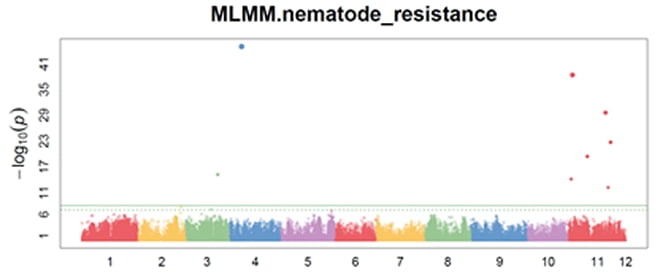
Genome wide association study (GWAS)
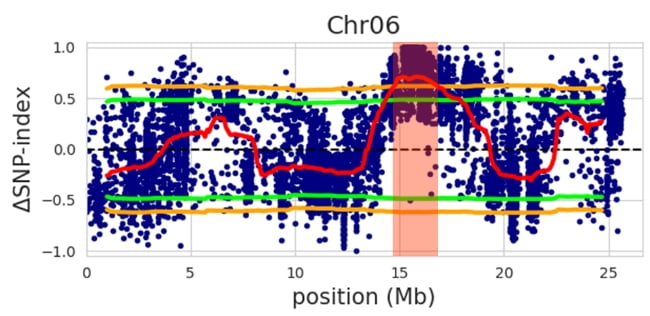
BSA (Bulk Segregant Analysis) QTL-seq
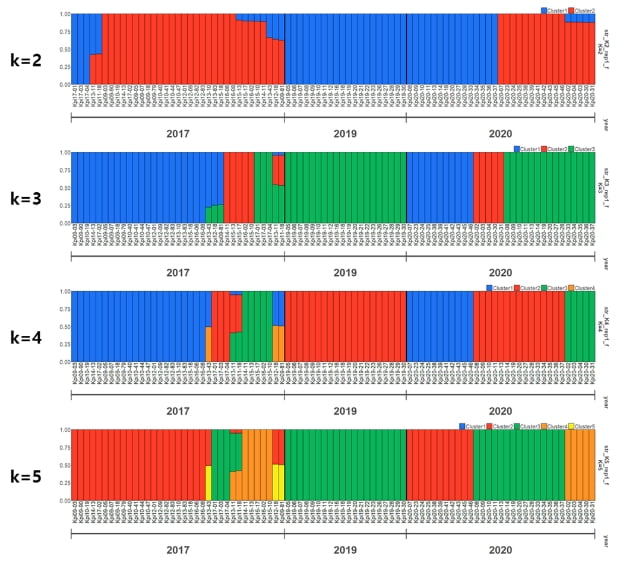
Genetic diversity and population structure analysis
-
